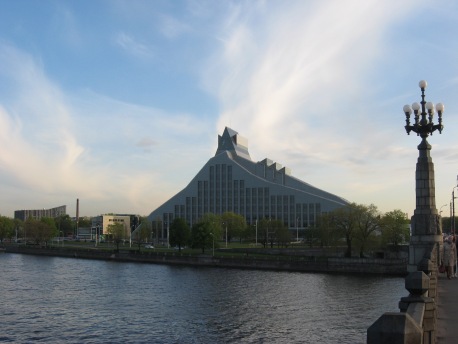One of my New Year resolutions is to read even more books. I love reading and through the work and travels I have collected a small library. Unfortunately my library is scattered – most books are in Latvia, many in USA and a few in Thailand. I have a dream that one day I will be able to have a proper office with a nice big desk and all my books within a reach.
I have friends in Minnesota who have this great book-reading tradition called “Theology Pub”. They read one book per month and then meet at a local pub for discussion and reflection. If I lived in Minnesota, I would join them. I love a good discussion and thought-provoking books. The last book they read in 2015 was “Jesus and the nonviolent revolution” by André Trocmé.
I was not able to join the discussion. (So, if any of you have read it, I would love to hear your thoughts.) Timely and relevant book even though the author died in 1971. André Trocmé was a French protestant minister who led a nonviolent resistance in south central France during WWII. The people of the village of Le Chambon-sur-Lignon saved thousands of Jews by hiding them in their barns, farms, homes. Their actions were very much inspired by their theological beliefs that every human being has a God given dignity and worth and no system or government has right deny it.
Here is a glimpse into André Trocmé’s writings: “Every nation is inclined to equate its fundamental values with the institutional shell built to protect and express them. Consequently its leaders are tempted to use lies to defend the truth, violence to protect the peace, and persecution to save charity.” He talked about (and practiced) nonviolent resistance to evil. God is love, so André Trocmé argued that we have to use different kind of weapons – the weapons of the Spirit.
Continuing the thought: “The state – the way of power – can only work from the past to anticipate the future and determine its course. As long as the church abandons its calling, that state will know nothing of repentance. But the church in its midst does know repentance, and it knows only that, and it bears witness to that before the state, for the healing of the nations. If Christ’s followers do not surpass the state in justice, they do not belong to God’s kingdom; they leave the world to fend for itself in the agony of its abandonment.”
I like reading autobiographies of people who either inspire me or give me something to reflect upon. For example, “The Story of My Experiments with Truth” by Gandhi or “The Seven Storey Mountain” by Thomas Merton, an American writer/monk. Also, “Light Force” by Brother Andrew, telling the story of his work in the Middle East.
Last year I read “I am Malala” by Malala Yousafzai, a Nobel laureate, and “A Journey” by Tony Blair, the former prime minister of UK. Regardless of what you think of Tony Blair, I was very interested in his experiences in the peace process in Northern Ireland and the Good Friday Agreement. It gives a lot of insight into mediation and conflict resolution processes and challenges.
Then there are lots of books on forgiveness and reconciliation. At the top of the list would be “Free of Charge: Giving and Forgiving in a Culture Stripped of Grace”, “Exclusion&Embrace” and “The End of Memory” by Miroslav Volf, a Croat theologian and thinker who teaches at Yale University. I highly recommend anything he has written.
Since I promised only a peek, this is a short list. I look forward to more good reading this year. Also, friends in Latvia, my ‘library’ is open for anyone…
Next time I am in Riga, I intend to spend some time at the National Library which, besides a great collection of books and resources, has the best view of Old Town. Who would not want to enjoy it?!


You have inspired me to try harder to participate in the theology pub. So far I’ve only gotten as far as having ‘good intentions’. Thanks for the book recommendations. I respect your advice.
LikeLike